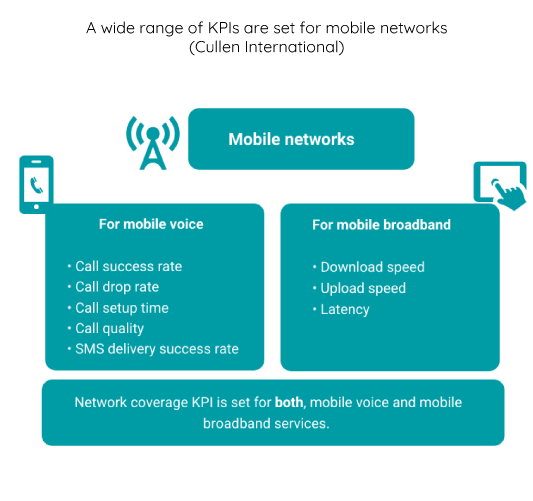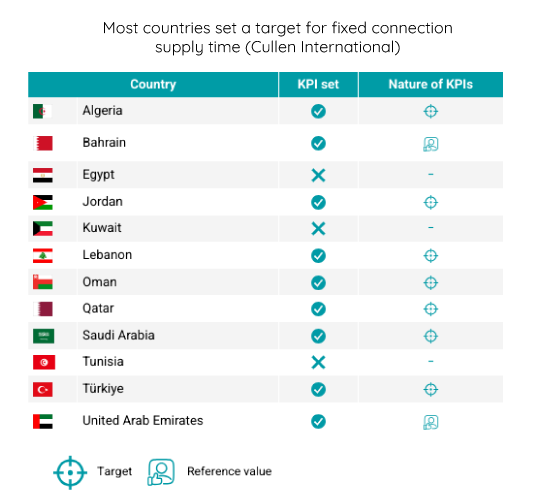Telecoms regulators in all MENA countries define key performance indicators (KPIs) to measure the quality of the telecommunications services provided to consumers.
However, while most regulators set performance targets that operators must achieve, in Bahrain and the United Arab Emirates, regulators only define reference values rather than binding targets.
The latest update of Cullen International’s benchmark on quality of service (QoS) provides detailed data on the QoS targets set in 12 studied Middle East and North African countries.

KPIs for fixed networks are generally similar to those used for mobile networks but with a few differences. Some indicators are specific to the type of network, such as SMS delivery time which applies only to mobile networks and fixed connection supply time which is specific to fixed networks.

Cullen International’s QoS benchmark provides details on the regulatory framework for QoS for voice and data services provided over mobile and fixed networks. It also covers how QoS is measured and reported, how targets are set, and the penalties that are applied when operators fail to meet the KPIs.
For more information and access to the full benchmark, please click on “Access the full content” - or on “Request Access”, in case you are not subscribed to our MENA Telecoms service.
more news
24 June 25
Global gigabit network deployment reveals significant disparities across 15 major jurisdictions
A new Global Trends report assesses gigabit network progress across 15 jurisdictions worldwide, examining critical deployment factors and strategic approaches. The report covers Australia, Brazil, Canada, China, the EU, India, Japan, Korea, Malaysia, New Zealand, Singapore, South Africa, Türkiye, the UK and the US.
23 June 25
Limiting online intermediary liability in the Americas
Cullen International’s latest benchmark shows that most countries in the Americas limit the liability of online intermediaries for third-party copyright infringements, reflecting digital-era updates to copyright laws. The research also examines liability rules for defamation and other IP violations, as well as varying takedown obligations across jurisdictions. Some countries have introduced specific measures to address the unconsented sharing of intimate content.
16 June 25
Global trends towards 6G
While mobile 5G networks and services are becoming increasingly available worldwide, according to industry experts, 6G networks might become commercially available, at least in some parts of the world, by 2030. This Global Trends report provides an update about the preparatory works towards 6G.